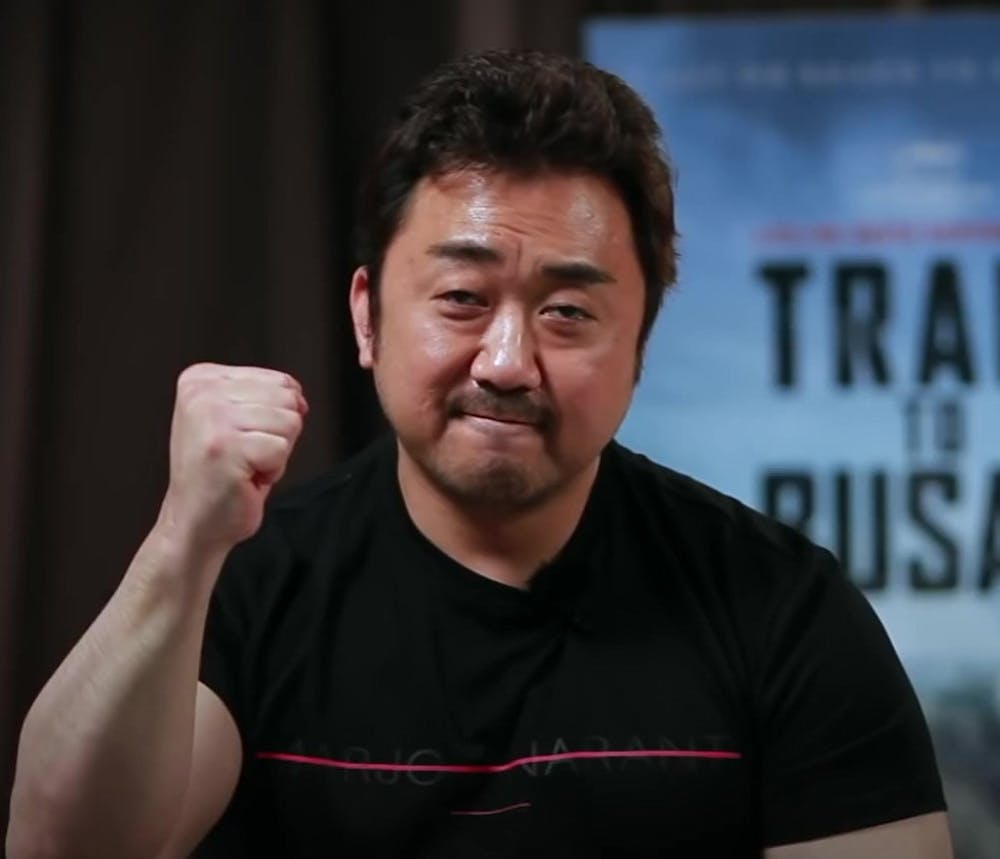Although there were plenty of strong films such as The Witch and Don’t Breathe, horror films released in 2016 were missing something, in my opinion. At a certain point I, as a horror fan, have a craving for something I know, just executed extremely well. Everyone wants to reinvent the wheel nowadays and sometimes all it takes to make a great film is to wear cliches and tropes on your sleeves and execute them in an amazing way. That’s what Train to Busan does and it excels because of it.
Train to Busan is a South Korean zombie flick surrounding a divorced salaryman’s attempt to grant his daughter’s one birthday request, to see her mother in the South Korean city of Busan (the film starts in Seoul). The film has all the classic horror film beats in its setup.
As the father and daughter enter the train, there’s of course the sick person who will start the epidemic, as well as numerous people who the camera lingers on, people who you know will form the meat of the supporting cast.
The film really gets started around 30 minutes in, and from that point it really doesn’t take a breather for the rest of its nearly two-hour runtime. The action doesn’t stop, and it doesn’t leave room for the audience to breathe. In most genres that would be seen as a negative, but luckily Train to Busan uses the stressful situation to build a few strong characters.
After the initial zombie outbreak on the train, the characters make it to the city of Daejeon, where a military outpost is reported to be active. Yet as the ragtag group of survivors make their way to the checkpoint they soon realize that Daejeon has been overrun and make their way back onto the train, this time headed for what they know is the final stop, Busan, where another supposedly more successful military checkpoint is set up.
Ma Dong-seok takes the cake of best acting performance in the film, in his role as Sang-hwa. Sang-hwa is a man with a pregnant wife who comes into conflict with the protagonist early on. They work together for the rest of the film and form a zombie-killing tandem that you can’t help but cheer for.
The cinematography is mostly unremarkable, but there aren’t any major problems with it.
The film’s strengths revolve mostly around the ridiculous set pieces that director Yeon Sang-Ho (who had mostly directed animated films prior to this) set up. These include memorable sequences in which the cast of survivors must sneak through a completely darkened train — since without sight the zombies have to rely on only sound to hunt — and a final chase sequence that seems to improve on every aspect of a similar chase scene in Brad Pitt’s 2013 stinker World War Z.
Train to Busan isn’t flawless. It’s very melodramatic at points and most characters get lengthy speeches to accompany their deaths. It’s also not one for the squeamish, but it’s far from the most violent zombie movie of the past decade.
All in all, Train to Busan takes genre expectations of zombie movies and manages to craft an action-filled horror film that, while not the scariest, is the tightest and in my opinion best horror film of 2016.





